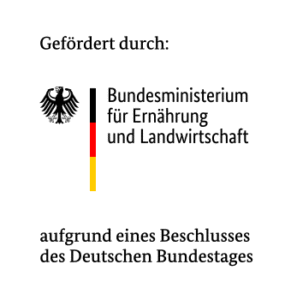Research Projects
The members of the research field Digital Cultural Spaces collaborate in several ongoing interdisciplinary research projects at the intersection of digitalization, culture, and space:
Digitalization in Aesthetic, Arts and Cultural Education [DiKuBi]
[Digitalisierung in der kulturellen Bildung ]
Management: Stephan Kröner, Benjamin Jörissen
Staff: Franz Krämer, Alexander Christ, Kathrin Smolarczyk, Lisa Birnbaum (former: Marcus Penthin, Friederike Schmiedl, Lisa Unterberg)
Period: 2017-2022
Funding: Federal Ministry of Education and Research

Abstract:
This is a meta-project, encompassing monitoring of the individual sub-projects, research syntheses and outreach related to the BMBF-funded priority programme on digitalization in cultural education. Its aim is to synthesize available evidence from international research on digitalization in cultural education, including that provided by the projects funded in the priority programme. Moreover, we monitor and support the individual research projects within the programme. This includes facilitation of networking among the funded projects as well as with national and international researchers in the field. The meta-project provides young scientists from the priority program with methodological support (courses on research methods and junior researcher conferences), as well as with inspiration and networking opportunities. Moreover, based on the notion of open science, we provide the projects in the priority programme with support for research data management. Publications and events targeted at a broader expert audience help to promote the meta-project’s results.
Digitalisation in aesthetic, arts and cultural education (D-ACE) is a loosely defined and fragmented field, requiring reviewing in research syntheses. Thus, we develop comprehensive search strategies to compile the international research literature on D-ACE, harnessing big data methods like text mining and predictive modelling. This strategy extends to (1) identifying topics with many original publications that are in need of a synthesis (so-called “hot spots”), (2) synthesizing the studies related to the most vibrant hot spots and (3) determining the level of evidence of existing research within the hot spots.
Further information: https://www.dikubi-meta.fau.de/
Potentials and Strategies of Digital Regional Development in Rural Areas
[Heimat Digital (HeiDi): Potenziale und Strategien digitaler Regionalentwicklung im ländlichen Raum]
Management: Tobias Chilla, Stephan Kröner
Staff: Carola Wilhelm, Lisa Birnbaum
Period: 2020-2023
Funding: Federal Office for Agriculture and Food

Abstract:
Recent developments in digitization may be seen as threats, however, they also provide the opportunity to foster a positive relationship of people with their communities (place attachment) via participatory regional development. This may be particularly positive for sustainable development of rural areas at risk of demographic decline. The project’s aim is to synthesize, systematize and analyse Europe-wide examples of ‘good practice’ related to digital strategies and instruments on this issue. These examples will be compiled, resulting in an orientation framework that is being made available in the form of a digital toolbox for further use in regional development.
The research questions are: how can digitization contribute to a positive interpretation of rural areas or rural identification? How can the potential of digitization be used for participatory regional development? In particular, how can place attachment be strengthened? And how may contributors only digitally present be involved? How can place attachment counter depopulation and migration? And how can digital tools be used to successfully address pivotal challenges of rural regions such as brain drain and youth drain? Which strategies have already been successfully pursued based on such questions? What criteria of good practice for participatory digital regional development result from examples available in Europe?
By addressing these questions, the project will provide a deeper insight into patterns and processes of place attachment in times of digitization and demographic change. At the same time, it provides a toolbox for the target-oriented design of programs for rural regions. Given the lower carbon footprint of rural populations, this also contributes to sustainable development.
Further Information: https://www.lebi.phil.fau.de/heidi/ und https://www.geographie.nat.fau.de/heimat-digital-neues-projekt-zur-digitalen-regionalentwicklung-im-laendlichen-raum/
Libraries, Digitalization, and Cultural Education in Rural Areas: Conditions and Models for theDevelopment of Local Libraries as Culture Space in the Context of Post-digital Youth Culture.
[Bibliotheken, Digitalisierung und kulturelle Bildung in peripheren Räumen: Bedingungen und Modelle zur Entwicklung der Bibliothek als Kulturort im Kontext post-digitaler Jugendkultur]
Management: Benjamin Jörissen
Staff: Viktoria Flasche
Period: 2019-2022
Funding: Federal Ministry of Education and Research

In rural areas, there is a lack of digital innovation in the cultural sector. This is mainly due to a lack of structures. The BiDiPeri research project investigates how cultural and educational offers can compensate for this deficiency. It focuses attention on the library as a place of culture and an institution of cultural education. Libraries in cities have often developed into regional innovation centres in recent years; the project aims to research this potential and make it applicable to rural areas.
A lack of cultural offerings encourages rural exodus. We investigate how rural areas can be developed so that they form a culturally attractive environment for “digital natives”. As “digital natives” we refer to people who have grown up with digitality since they were small children. We are therefore particularly interested in digital innovation through libraries in rural areas. The aim is to develop a (post-) digital educational offer in rural libraries. The BiDiPeri project works with methods of qualitative social research. It is divided into three phases. In the first phase, we use group discussions to determine how digital-cultural education is shaping up for young people in rural areas. In the second phase, we research libraries with (post-) digital educational offerings. We combine participant observations and expert interviews. From the results we develop a model, which we test experimentally in the third phase. We also ask those involved about their experiences, assessments and opinions.
The BiDiPeri project has gone untrodden paths so far. In addition to classic youth and program research, we use our results to develop our own, innovative educational program for libraries in rural areas. After this program has been tested, it will initiate further developments. We are also planning an online platform that will allow participants to network with one another, but also to offer access to offers, workshops and ideas.
Further information: https://www.uni-leipzig.de/projekt-metaklub/die-projekte-der-foerderrichtlinie/bidiperi
